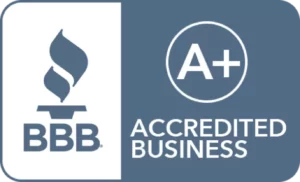Many individuals work their entire adult lives, but struggle to save for retirement. As of this year, 22% of individuals have less than $5,000 designated as retirement savings, according to data from Northwestern Mutual’s 2019 Planning & Progress Study. Of those studied, only 16% have $200,000 or more saved for retirement.
This poses a troubling issue for many Americans who wish to maintain their comfortable lifestyle during retirement. As the average lifespan increases, you may need to rethink how much money to allocate towards retirement even if you’re already retired.
One popular option among Generation Xers and Baby Boomers is freelancing to support their financial needs. But there is another way to achieve financial stability and enjoy your golden years: make investments during retirement.
Make These Investments During Retirement
When you’re young and beginning to save, you have the liberty to make riskier investments with the hopes of generating higher income or gains. But as you move closer to your retirement years, it’s important to rethink your investment goals and focus on how to maintain your wealth. Apply this strategy when making investments as a retiree.
In truth, every investment comes with its share of risks, but certain investments are (undeniably) riskier than others. For example, cryptocurrency has a volatile value, therefore crypto is riskier than municipal bonds. As a rule of thumb, avoid chasing risky investments with high returns, and focus more on investments with a steady growth rate, such as real estate.
With a self-directed retirement plan, you can easily make the investments you understand and trust. And when in doubt, work with a financial advisor to get your investments back on track.
1. Real Estate Investments
Real estate is the number one alternative asset investment among self-directed retirement investors. There are a number of reasons people see real estate as an attractive investment, many of which make it a great investment for retirees.
- Real estate can yield a steady income on a monthly or annual basis.
- During inflation, real estate properties can grow in value, while many other investments erode.
- Real estate is a tangible investment that can be controlled. Compare to the stock market, where investors have far less control.
From a tax standpoint, using a self-directed retirement plan will produce tax-deferred income/gains on the real estate investment.
Factors to Consider
Real estate often requires a large capital to get started. It’s not a liquid asset, so you can’t easily “get rid of it” during financial strife. Real estate investments also take a lot of work – being a landlord can feel like a full-time job. You can hire a contractor to deal with the needs of the property, but this will cut into your budget.
Nevertheless, if you manage your property correctly, a real estate investment can produce a healthy, steady income during retirement.
2. Investments in the Stock Market
Although stocks may be a riskier investment than real estate, this does not negate its ability to yield a steady stream of income when investors choose the right stocks. When it comes to investing in stocks, you should always do your homework. You can never have stock investing down to a science, but you can research to mitigate potential risks.
And here is what your homework should look like:
- Research companies that have rebounded after times of hardship and generally decline only when the entire market takes a hit.
- Look at the performance of particular industries – how fast are they growing? Next look at specific companies within the industry and determine how that company is performing against its competition.
- Look at the company’s earnings – has it consistently increased over the years? No matter how small, earnings growth is a sign of stability within a volatile market.
Factors to Consider
As you get older, do not invest a lot of your money in the stock market – invest only a fraction of your money and invest in stocks that have a slow, but consistent growth.
3. CD Investments
A certificate of deposit (CD) is a loan that you make to your bank, allowing the bank to keep your money for a specified time period, such as two years. You are then guaranteed an ROI on the CD at the end of the specified period. The return on the investment is small, but larger than the interest you would generate from a regular savings or money market account.
And you don’t lose money.
Factors to Consider
You will not receive access to your money during the specified time period, and if you remove a portion of the funds, the bank will slap you with a fee. But if you choose a liquid CD, you can remove some or all of your funds at any time, penalty-free. The returns of liquid CDs are typically less than regular CDs, but is still higher than a regular savings account.
Key Takeaways
When choosing what investments to make, you have so many options with a self-directed retirement plan: cryptocurrency, tax liens and notes/loans to name a few. But as a retiree, protecting your wealth and generating steady income should be your primary objective as you make investments.











